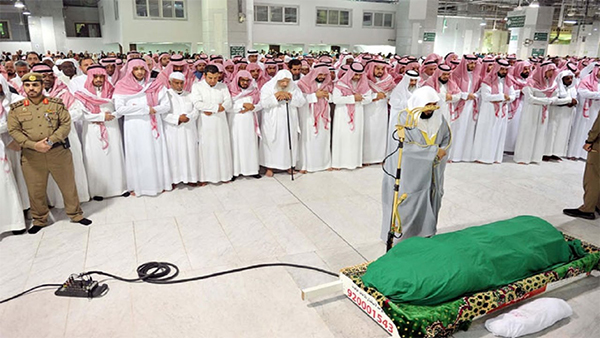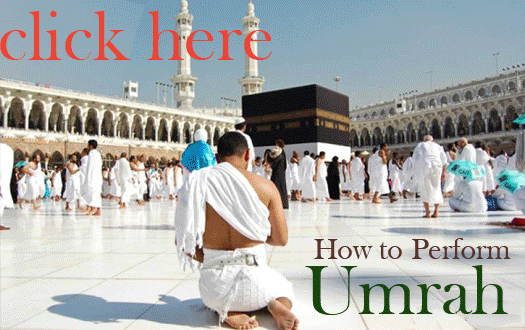how to pray salathul janaza
How to pray salathul janaza? Salathul janaza Is a prayer offered Before burying a Muslim dead body. Why am I writing this article the umrah guide? Because in masjid al-haram and masjid al Nabawi, Salathul Janaza is Offered after every farld prayer. It's a sunnah which has its own rewards. Praying inside masjid al Nabawi or masjid Al haram makes even more virtuous with great rewards.

How do you Salathul Janaza?
- For the Salathul Janaza, there will be no adhan or Iqaamah.
- Salathul Janaza is performed in standing posture. Which means there is no rukhu, no sujood.
- There is four thakbir then give salam.
- The Janaza ( body of the demised) will be placed in front of the Imam who leads the prayer. The Imam stands in line with the chest of the deceased.
- Everyone in the congregation must have the intention of performing Salaah Al Janaazah for the sake of Allah and in prayer for the deceased.
The niyyat for Salathul Janaza
The niyyat will be,
“I make the niyyat for the prayer of this janaza for Allah, duaa for this deceased, behind this imam.”
Usalli sunnatal salathul janaza araba thakbiratin lillahi-tha'ala. Allahu Akbar.
After the first thakbir
Recite surah Al fathiha followed by a short surah or some aayahs.
After the second thakbir
Recite salawat on prophet mohammad pbuh.
Allahumma Sally ala muhammadin wala aali muhammad kamaa sallaitha ala ibraheema wa aala aali ibraheema Wa barik ala muhammadin wa aala aali muhammad.
After the third thakbir
Recite dua for the janaza
Click here for the long dua
After the fourth thakbir
Give salaam by turning head right saying Assalamu Aalaikum warahmathullah.
Janaza Dua
“Allaahumma ighfir lihaayina wa mayitina wa shaahidina wa ghaa’ibina wa sagheerina wa kabeerina wa dhakarina wa unthaana. Allaahumma man ahyaytahu minna fa ahyihi ‘ala’l-Islam wa man tawaffaytahu minna fa tawiffahu ‘ala’l-eemaan. Allaahumma ighfir lahu warhamhu wa ‘aafihi wa a’fu ‘anhu, wa akrim nuzulahu wa wassi’ madkhalahu waghsilhu bi’l-maa’ wa’l-thalj wa’l-barad, wa naqqihi min al-khataaya kama yunaqqa’ al-thawb al-abyad min al-danas. Allaahumma abdilhu daaran khayra min daarihi wa ahlan khayra min ahlihi. Allaahumma adkhilhu al-jannah wa a’idhhu min ‘adhaab il-qabri wa min ‘adhaab il-naar wa afsah lahu fi qabrihi wa nawwir lahu fihi. Allaahumma laa tahrimna ajrahu wa la tadillanaa ba’dahu
(O Allaah, forgive our living and our dead, those who are present among us and those who are absent, our young and our old, our males and our females. O Allaah, whoever You keep alive, keep him alive in Islam, and whoever You cause to die, cause him to die with faith. O Allaah, forgive him and have mercy on him, keep him safe and sound and forgive him, honour the place where he settles and make his entrance wide; wash him with water and snow and hail, and cleanse him of sin as a white garment is cleansed of dirt. O Allaah, give him a house better than his house and a family better than his family. O Allaah, admit him to Paradise and protect him from the torment of the grave and the torment of Hell-fire; make his grave spacious and fill it with light. O Allaah, do not deprive us of the reward and do not cause us to go astray after this).”
All of this was narrated from the Prophet (peace and blessings of Allaah be upon him). If you make du’aa’ with other words, this is OK, for example, you could say, “Allaahumma in kaana muhsinan fa zid fi ihsaanihi wa in kaana musee’an fa tajaawaz ‘an sayi’aatihi. Allaahumma ighfir lahu wa thabbit-hu bi’l-qawl il-thaabit (O Allaah, if he was a doer of good, then increase his good deeds, and if he was a wrongdoer, then overlook his bad deeds. O Allaah, forgive him and give him the strength to say the right thing).” Then you say a fourth Takbeer and pause for a little while, then you say one Tasleem to the right, saying “Assalaamu ‘alaykum wa rahmat-Allaah.”
Salathul Janaza is an act of worship. It's Farzhl al Kifaya. Which means it's is compulsory for the community. If the act is performed and finished, the people who performed it will get good deeds, and the rest of the community will be freed. If it is not performed by any, then the whole community is responsible.
Fard al-Kifayah is a legal obligation that must be discharged by the Muslim community as a whole, such as military struggle; if enough members in the Muslim community fulfil the obligation, the remaining Muslims are freed from the responsibility before God. However, if a communal obligation is not sufficiently discharged, then every individual Muslim must act to address the deficiency. In recent Islamic literature, this terminology is used to discuss social responsibility, such as feeding the hungry, commanding good, and forbidding evil.
- (ﷺ)- (salallahu Alai wasallam)- May Allah's peace and blessings be upon him
- رضي الله عنه (Radhiallahu’ Anhu) - May Allah be pleased with him
- عليه السلام (Alaihi Salam) - Peace be upon him
For business inquiries: myumrahguide@gmail.com
Recent Articles
-
Performing Umrah with children
May 05, 22 10:04 AM
Performing Umrah with children or infants are full of challenges. -
Umrah for woman - Ladies special Edition written for ladies only
Apr 17, 22 05:57 AM
umrah for woman is not like umrah for men, there are some differences. This Article briefs all the concerns of lady during her Umrah. -
Masjid Suqya and saqya well - Masjid As Suqya
Apr 08, 22 04:36 PM
Masjid Suqya is where the prophet Muhammad PBUH, prayed and supplicated for residents of Madinah and then marched to the battle of badr.




New! Comments
Have your say about what you just read! Leave me a comment in the box below.